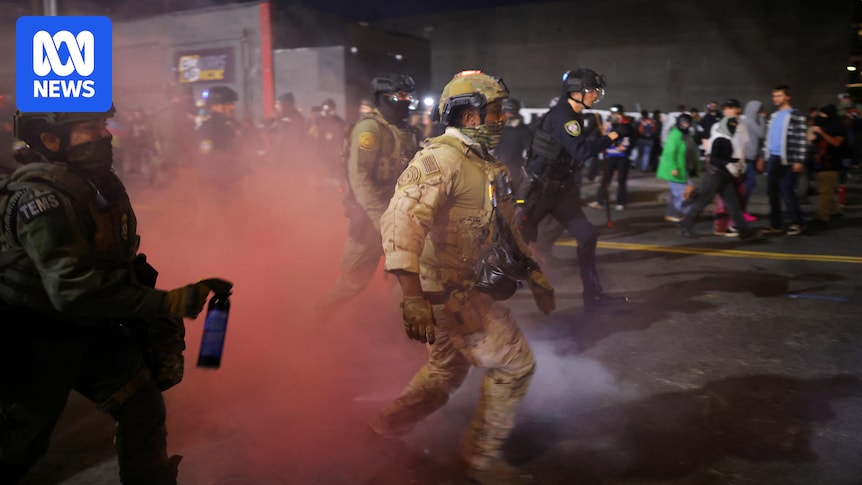
A federal judge has temporarily blocked the Trump administration from deploying National Guard units to Oregon, including those from California and Texas. This decision comes amid ongoing protests outside a U.S. Immigration and Customs Enforcement (ICE) building in Portland.
The ruling by U.S. District Judge Karin Immergut followed President Donald Trump’s recent decision to call in troops from California and Texas. This move came just a day after Judge Immergut had already temporarily blocked the deployment of 200 Oregon National Guard troops to Portland. The judge cited a lack of evidence that the protests necessitated military intervention.
“How could bringing in federalised National Guard from California not be in direct contravention of the [decision] I issued yesterday?” Judge Immergut questioned a Trump administration lawyer during a hearing.
Legal and Political Repercussions
The ruling, effective until at least October 19, prevents the Trump administration from deploying any National Guard troops to Portland while Oregon and California pursue a longer-term court ruling. The White House and the Pentagon have not yet commented on the judge’s order.
California and Oregon sought the temporary restraining order after the president had already sent guard members from California to Oregon. A Pentagon spokesperson noted that around 200 federalised California National Guard members were being reassigned to Portland.
Oregon Governor Tina Kotek reported that about 100 troops had arrived on Saturday, with another 100 en route. She expressed frustration over the lack of formal communication from the U.S. government regarding the deployment.
State Reactions and Legal Challenges
The states initially requested a narrower order, aiming to block only California National Guard troops. However, they expanded their request after a memo from Defense Secretary Pete Hegseth revealed plans to activate up to 400 Texas National Guard personnel for deployments to Oregon, Illinois, and possibly other locations.
Texas Governor Greg Abbott stated, “You can either fully enforce protection for federal employees or get out of the way and let Texas Guard do it,” in a social media post.
Oregon Attorney-General Dan Rayfield emphasized the legal stance, stating, “What was unlawful yesterday is unlawful today. The judge’s order was not some minor procedural point for the president to work around.”
Historical Context and National Implications
Judge Immergut’s decision underscores a longstanding tradition of resistance to federal overreach, especially regarding military involvement in civil matters. She highlighted that the relatively small protests did not justify the use of federalised forces, warning that such actions could harm Oregon’s state sovereignty.
“This historical tradition boils down to a simple proposition: this is a nation of constitutional law, not martial law,” Judge Immergut wrote in her ruling.
President Trump, however, has described Portland as “war-ravaged” and suggested the city is “burning down,” though local officials argue these claims rely on outdated images from 2020 protests.
Comparisons and Broader Deployment Efforts
The events in Oregon echo similar situations in other states. Illinois Governor JB Pritzker also announced the activation of troops, and President Trump has previously sent or considered sending troops to several cities, including Baltimore, Memphis, and New Orleans.
In Chicago, the presence of armed, camouflaged Border Patrol agents has raised concerns about racial profiling, particularly in immigrant-heavy areas. Protests have been frequent, with federal officials reporting multiple arrests.
Looking Forward: Legal and Social Ramifications
The ongoing legal battles and public protests highlight a deepening divide over federal intervention in local affairs. As states like California and Oregon challenge the administration’s actions, the implications for state sovereignty and civil liberties continue to unfold.
Governor Gavin Newsom of California has vowed to fight the deployment in court, urging public vigilance against what he terms “reckless and authoritarian conduct” by the president.
The situation remains fluid, with both legal and political consequences likely to shape the discourse on federal authority and state rights in the coming weeks.





